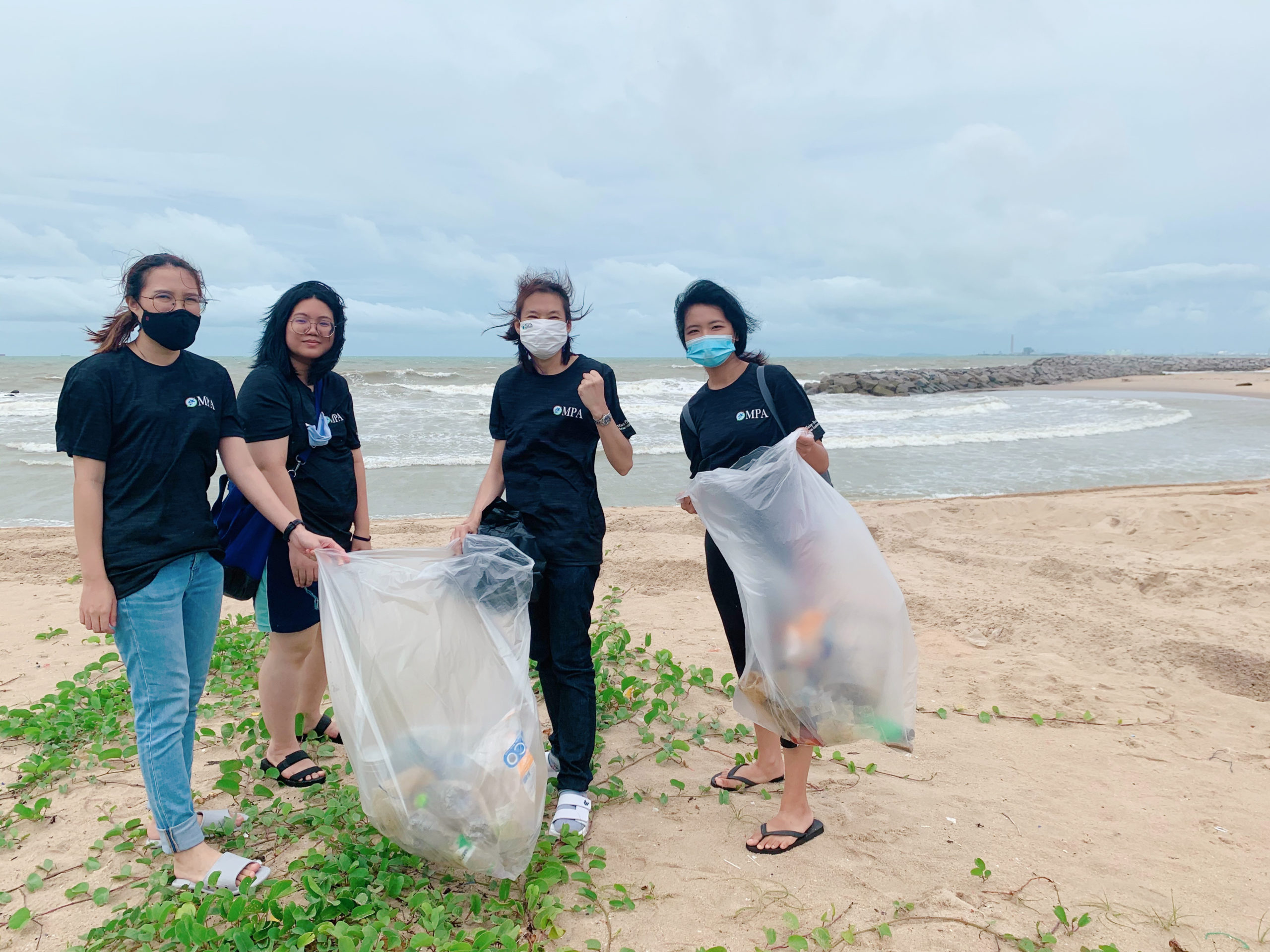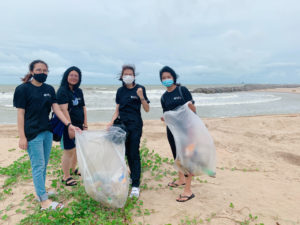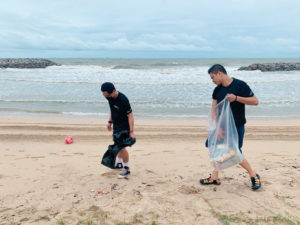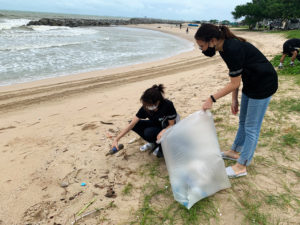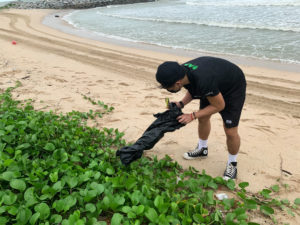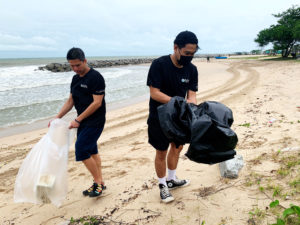By Kanda Yaemboonruang
To mark “International Coastal Cleanup Day 2020” a large group from AIT’s Environmental Engineering and Management (EEM) and Marine Plastics Abatement (MPA) programs recently combed the beaches of the Gulf of Thailand in search of plastic litter to remove and study.
Over 40 AIT students, researchers and faculty took part in a special cleanup activity along the coastline connecting Laem Charoen and Ta Kuan beach in Rayong province of Thailand. AIT collaborated on the activity with the Office of Marine and Coastal Resources. Local residents and well as public and private sector representatives joined the cleanup mission.
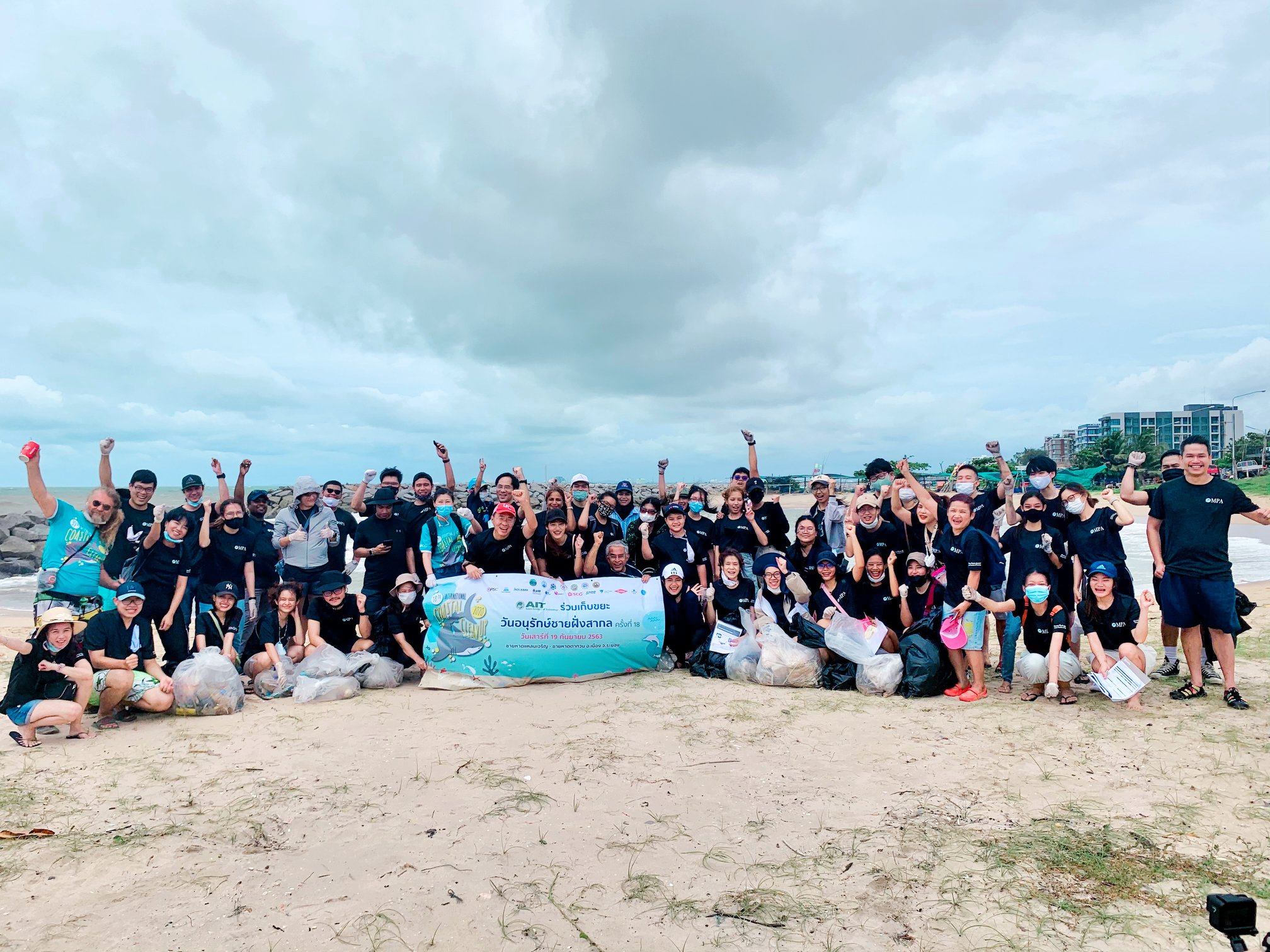
All waste collected was counted and separated by type as being recyclable, organic, hazardous and general waste. After thorough waste segregation, the students selected some of the plastic waste samples for their research on micro plastics, as part of their MPA course titled “Marine Ecosystems and Emerging Pollution.”
Mr. Phurinat Ruttanachuchote, a student in MPA, explained: “Joining the international beach cleanup day, I gained a lot of experience about waste management which is a critical issue. It gave me a chance to observe the zero-waste village and enabled me to see the real life environmental problems on the ground, and not only problems mentioned in papers. In my opinion, everyone should be more concerned about this problem and address it before it worsens.”
The beach cleanup activity was a part of the “1st eMPAthy Field Visit 2020” from 19-20 September in Rayong. Students and faculty learned about waste management at the Wangwa Village, a sustainable zero-waste community under a no-waste project. Professor Dr. Thammarat Koottatep, Coordinator of the Marine Plastics Abatement Program described the Wangwa Village as a model for other villages to adopt and adapt the zero-waste practice of living.
Mr. Thanapat Jansakoo, a research assistant, said: “Being a part of this activity, I have learned so much about successful waste management at the community level, so we can incorporate their practices to our project conducted at AIT. We also helped protect the Rayong seaside from plastic pollutants. Although our efforts account for a small fraction at the moment, we hope that in the future more public awareness will take hold and the wider society will join forces with us.”
During the trip, the Master’s students learned about seagrass and had an opportunity to plant it. Seagrass is a flowering plant that can provide shelter and food to an extremely diverse community of animals from tiny invertebrates to large fish, crabs, turtles, marine mammals and also birds. Unfortunately, human activity has reduced the abundance of seagrass. Nonetheless, there is now more awareness of the roles of seagrass in its surroundings, and efforts are currently underway to restore the natural balance in marine ecology.
The outing also included a workshop on “Communications and Strategy Challenges of the Plastics Issues” by Tom Potisit, a renowned photographer who presents stories from the sea through his art in order to raise awareness of the fragility of marine animal lives.
“I learned how serious our impact on the marine environment is from the coastal cleanup activity and from the visit to the zero-waste village and special talk. It was important to understand the practices and the challenges faced by those who are actually participating in solving the environmental issues from different aspects,” said Ms. Ingyin Myintswe, a Myanmar student in EEM, who was very impressed with the trip.

